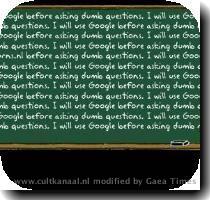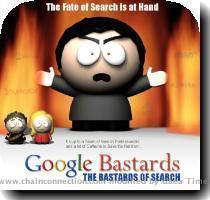Comcast, Federal Communications Commission take network neutrality dispute to court
By Joelle Tessler, APFriday, January 8, 2010
Comcast, FCC take net neutrality dispute to court
WASHINGTON — The Federal Communications Commission ran into a potential setback Friday in its push to draft rules that would require Internet providers to give equal treatment to all data flowing over their networks.
In hearing a legal dispute between the agency and Comcast Corp., a three-judge federal appeals court panel questioned the commission’s authority to impose so-called “net neutrality” obligations on the nation’s largest cable TV and Internet operator. Those rules are intended to prevent broadband providers from abusing their control over the market for high-speed Internet access.
A decision that goes against the FCC could undermine its ability to impose such rules on all broadband companies — not just Comcast.
Friday’s oral arguments centered on Comcast’s challenge of a 2008 FCC order banning the company from blocking its broadband subscribers from using an online file-sharing technology known as BitTorrent. The commission, at the time headed by Republican Kevin Martin, based its order on a set of net-neutrality principles it adopted in 2005 to prevent broadband providers from favoring or discriminating against certain types of Internet traffic. Those principles have guided the FCC’s enforcement of communications laws on a case-by-case basis.
Formally adopting those guidelines as binding regulations is a top priority for the FCC’s new Democratic chairman, Julius Genachowski. The agency voted in October to launch a proceeding to write the rules.
But with Comcast appealing the FCC order, a key question for the U.S. Court of Appeals for the District of Columbia Circuit is whether the commission has legal authority to impose such obligations. The three-judge panel, which is expected to issue a ruling this spring, appeared skeptical of that on Friday.
Still, in a statement following Friday’s arguments, Genachowski he is confident the commission possesses the legal authority it needs “to preserve the free and open Internet.”
Comcast had no official comment Friday.
The dispute over network neutrality has pitted some of the country’s leading Internet companies, including Google Inc. and the calling service Skype, against the big phone and cable operators.
The Internet companies say that without such rules, broadband providers could become online gatekeepers and prioritize traffic for those who can pay extra, while degrading or blocking cheaper Internet calling services or online video sites that compete with their core businesses.
Indeed, BitTorrent, the online file-sharing technology blocked by Comcast, can be used to transfer large files such as online video, something that threatens Comcast’s cable TV business. Public interest groups brought Comcast’s actions to the FCC’s attention after The Associated Press ran tests and reported that the cable company was interfering with attempts by some subscribers to share files online.
But broadband providers such as Comcast, AT&T Inc. and Verizon Communications Inc. argue that after pouring billions of dollars into their networks, they should be able to offer premium services to differentiate themselves from competitors and earn a healthy return on their investments.
They also insist they need flexibility to manage their systems so high-bandwidth applications such as BitTorrent don’t hog too much capacity and slow the network for everyone else.
While these issues are being hashed out in the net neutrality proceeding at the FCC, the current court case is focused on legal questions.
For its part, Comcast argues that the FCC order is illegal because the agency was seeking to enforce mere policy principles, which don’t have the force of regulations or law. As a result, the Philadelphia-based cable company says, it never had clear rules to follow and was never given fair notice of what conduct was prohibited. In fact, Comcast insists, the FCC’s current proceeding to adopt the 2005 principles as formal regulations underscores its point.
Comcast also maintains that because that proceeding is still in the early stages, it remains unclear whether the agency even has legal authority to mandate net neutrality obligations.
But the commission argues that a 2005 Supreme Court ruling upholding its move to deregulate Internet service gives it the jurisdiction it needs. The high court upheld the FCC’s decision to define broadband as a lightly regulated information service, which is not subject to the obligations traditional telecommunications services have to share their networks with competitors and treat all traffic equally. A 1996 federal telecommunications law, however, gives the agency authority to set rules for information services — including, the FCC argues, net neutrality rules.
An appeals court ruling that rejects this argument could draw Congress into the matter to give the FCC the power to regulate broadband as an information service. Several key lawmakers have already drafted legislation to mandate network neutrality. Or it could force the agency to consider reclassifying broadband as a more heavily regulated telecommunications service that would be subject to non-discrimination rules.
Either way, the case heard Friday could provide a road map. After all, even if the court issues a very narrow ruling — concluding only that FCC’s policy principles had were not binding — the FCC’s upcoming net neutrality regulations are likely to face a court challenge, too.
Tags: Cable Television, Communication Technology, Computing And Information Technology, Government Regulations, Industry Regulation, Internet Technology, Network Neutrality, North America, Online Media, Technology Issues, United States, Washington



